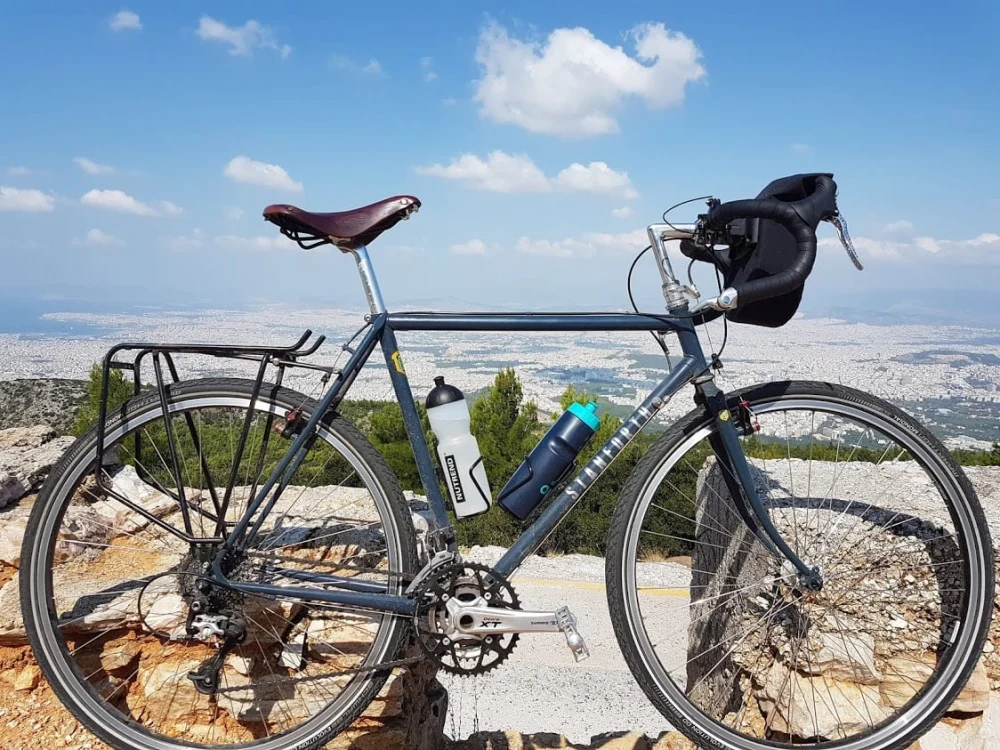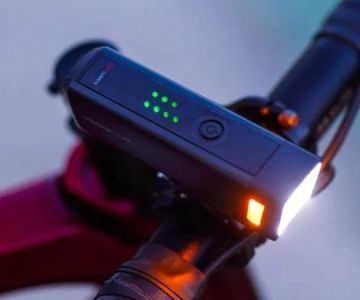
- 1-why-the-best-rear-bike-racks-matter-for-touring
- 2-key-factors-when-choosing-a-rear-rack-for-touring
- 3-popular-types-of-rear-bike-racks-and-their-uses
- 4-real-touring-cyclist-stories-racks-that-made-the-trip
- 5-how-to-choose-the-best-rear-bike-rack-for-you
1. Why the Best Rear Bike Racks Matter for Touring
1.1 Touring Is Not Just About the Ride—It’s About the Load
When it comes to bike touring, a sturdy and reliable rear rack isn’t a luxury—it’s a necessity. Long-distance riders often carry everything from food and tents to laptops and camera gear. Without the best rear bike racks for touring, that gear becomes a burden instead of a convenience.
1.2 Stability Equals Safety
Poorly designed or overloaded racks can throw off your bike’s balance and increase fatigue. A high-quality rear rack keeps your gear low and centered, reducing strain on your back and shoulders while keeping your ride smooth, especially during steep climbs or fast descents.
2. Key Factors When Choosing a Rear Rack for Touring
2.1 Weight Capacity and Build
Most serious tourers need a rack that holds at least 25–30 kg. Aluminum racks are light but can fatigue under stress, while steel options offer better durability, especially on rugged roads. Materials matter, particularly for those who’ll be hundreds of miles from the nearest shop.
2.2 Mounting Systems and Compatibility
Not all bikes come ready to install a rack. Check if your frame has braze-ons or eyelets. Some racks, like those with quick-release mounts, are designed for bikes without mounting points. Compatibility with disc brakes is also essential for modern touring bikes.
2.3 Versatility and Accessory Support
The best rear bike racks for touring are those that can support panniers, trunk bags, and even solar panel mounts. Some even feature built-in lights or reflectors. Versatility is key for adapting to different conditions across a long tour.
3. Popular Types of Rear Bike Racks and Their Uses
3.1 Full-Frame Touring Racks
These are the workhorses—heavy-duty racks built for carrying dual panniers and loads up to 40 kg. They're ideal for cross-country tours and remote treks where self-reliance is essential.
3.2 Minimalist Racks for Light Touring
If you prefer credit-card touring or use a bikepacking setup, you might opt for lighter racks that carry only rear top bags. They’re sleek, fast, and offer enough space for a minimalist trip.
3.3 Suspension-Compatible and Seatpost Racks
Touring on a full-suspension MTB? Look into seatpost-mounted racks. These aren’t as strong but work well for shorter tours. They're often used on gravel tours where traditional mounts are unavailable.
4. Real Touring Cyclist Stories: Racks That Made the Trip
4.1 James’ Journey Across Southeast Asia
James, a solo traveler from Manchester, used a Tubus Logo rack on his 3,000 km ride from Bangkok to Hanoi. “It never failed me—even when the roads disappeared,” he recalls. His story underscores why investing in a solid rack from the beginning pays off.
4.2 Olivia’s EuroVelo Adventure
Olivia cycled through 12 countries on her lightweight steel-frame touring bike. She swore by her Ortlieb-compatible rack for its balance and ease of loading. Even after a rear spoke snapped in Croatia, her rack held steady while mechanics fixed her wheel.
5. How to Choose the Best Rear Bike Rack for You
5.1 Define Your Touring Style
Are you a weekend explorer or planning a transcontinental epic? Minimalists may be fine with a compact rack, while heavy haulers need full-sized frames. Be honest about what you plan to carry.
5.2 Consider the Unexpected
Always factor in the unknown—sudden rain, mechanical breakdowns, or unexpected gear purchases. Choose a rack that allows flexibility, rather than one that barely meets your current load.
5.3 Get Advice from Experienced Cyclists
Talk to those who’ve done it before or explore resources on Cycling Guider where real riders share tested recommendations and gear reviews. It’s the best way to avoid costly trial-and-error.
5.4 Final Thoughts
Choosing the best rear bike rack for touring isn’t just about specs—it’s about reliability when you're far from home. A dependable rack can turn a stressful situation into a manageable one. Your journey deserves gear that can go the distance with you.







 Billet BMX5.0 (2 reviews)
Billet BMX5.0 (2 reviews) Far East Children Bicycle Factory1.0 (1 reviews)
Far East Children Bicycle Factory1.0 (1 reviews) Archer Motorsports, Inc.4.0 (8 reviews)
Archer Motorsports, Inc.4.0 (8 reviews) YEP Bike Works4.0 (55 reviews)
YEP Bike Works4.0 (55 reviews) Gorham Bike & Ski4.0 (498 reviews)
Gorham Bike & Ski4.0 (498 reviews) Alchemy Bikes4.0 (37 reviews)
Alchemy Bikes4.0 (37 reviews) How to Teach Kids to Ride a Bike: A Step-by-Step Guide for Parents
How to Teach Kids to Ride a Bike: A Step-by-Step Guide for Parents Tips for Riding on Busy City Streets: Smart Strategies for Urban Cyclists
Tips for Riding on Busy City Streets: Smart Strategies for Urban Cyclists Best US National Parks for Mountain Biking: Ride Epic Trails Across America
Best US National Parks for Mountain Biking: Ride Epic Trails Across America Best Aero Helmets for Time Trials and Racing
Best Aero Helmets for Time Trials and Racing How to Clean and Lubricate Your Bike Chain Like a Pro
How to Clean and Lubricate Your Bike Chain Like a Pro 10 Must-Have Items for Long-Distance Cycling Trips
10 Must-Have Items for Long-Distance Cycling Trips